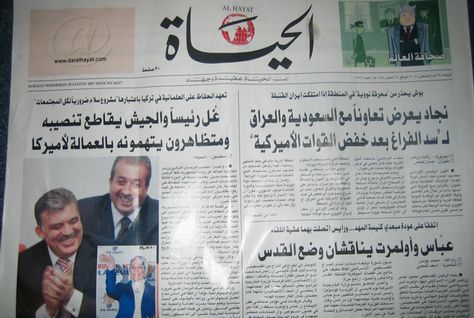Saudi Arabia tightens controls on media

Royal decree orders changes to media law, bans ‘anything that harms general interest’ of country
By Reuters
Saturday, 30 April 2011
Saudi Arabia tightened its control of the media, threatening fines and closure of publications that jeopardize its stability or offended clerics.
The desert kingdom and major US ally has managed to stave off the unrest which has rocked the Arab world, toppling leaders in Tunisia and Egypt.
“All those responsible for publication are banned from publishing … anything contradicting Islamic Sharia Law; anything inciting disruption of state security or public order or anything serving foreign interests that contradict national interests,” the state news agency SPA said on Friday.
Saudi Arabia follows an austere version of Sunni Islam and does not tolerate any form of dissent. It has no elected parliament and no political parties.
The tighter media controls were set out in amendments to the media law issued as a royal order late on Friday. They also banned stirring up sectarianism and “anything that causes harm to the general interest of the country.”
Almost no Saudis in major cities answered a Facebook call for protests on March 11, in the face of a massive security presence around the country.
Minority Shi’ites have staged a number of street marches in the Eastern Province, where most of Saudi Arabia’s oil fields are located.
Shi’ites are said to represent between 10 and 15 percent of the country’s 18 million people and have long complained of discrimination, a charge the government denies.
Saudi authorities arrested two Shi’ite bloggers from Eastern Province this week, adding to a total of 160 Saudis detained since February, according to a Human Rights Watch report in April.
Clerics played a major role in banning protests by issuing a religious edict which said that demonstrations are against Islamic law.
In turn, the royal order banned the “infringement of the reputation or dignity, the slander or the personal offence of the Grand Mufti or any of the country’s senior clerics or statesmen.”
King Abdullah has strengthened the security and religious police forces, which played a major role in banning protests in the kingdom.
The amendment published on Friday detailed punishments for breaking the media laws, including a fine of half a million riyals ($133,000) and the shutting down of the publication that published the violation, as well as banning the writer from contributing to any media.







